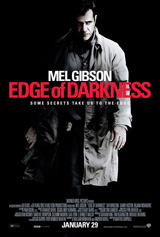Now that we have a thorough understanding of nouns—what they are and how to use them (for Mots Justes’s six-part series nouns, start here)—let’s move on to a part of speech that is used in place of a noun: the pronoun. Pronouns are handy because they help us avoid needless repetition:
Ann planned a baby shower for Ann’s friend.
Ann planned a baby shower for her friend.
The word or phrase a pronoun replaces—in this case Ann—is called an antecedent. An antecedent can be a noun, another pronoun, a phrase, or a clause. Usually it appears in the same sentence as the pronoun replacing it, but sometimes, if the reference remains clear, it can be found in a preceding sentence.
Troubleshooting Antecedents
This is imperative: a pronoun’s antecedent must always be clear to the reader. Make sure that your pronoun isn’t missing an antecedent:
The baby’s mother provided it to Ann so that she would know whom to invite.
What is “it”? In this case, we can guess it might be a guest list, but without an antecedent, we can’t be sure.
Also be careful that there isn’t more than one possible antecedent for a pronoun:
The baby’s mother and Ann agreed that she would provide the decorations.
Who is “she”—the baby’s mother or Ann?
Watch out, too, for multiple pronouns and antecedents in the same sentence:
Ann, the baby’s mother, and her best friend agreed that she would plan the menu while he would provide the entertainment.
Whose best friend is it—Ann’s or the baby’s mother? Who’s going to plan the menu—Ann or the baby’s mother? And who is providing entertainment—the baby or the best friend (and are they even male)?
Pronouns Without Antecedents
A pronoun doesn’t always have to have an antecedent as long as it doesn’t create confusion. First- and second-person pronouns almost never need antecedents, as they refer to whomever is speaking or being spoken to:
I bought the baby my favorite book from childhood: Alexander and the Terrible, Horrible, No Good, Very Bad Day.
What is your favorite children’s story?
You could supply an antecedent for a second-person pronoun in direct address:
Ann, what is your favorite children’s story?
There are also pronouns, called expletive pronouns, that don’t have antecedents:
It is time for the party.
In addition, the relative pronoun what and interrogative pronouns who, which, and what never have antecedents:
Who was late for the party?
Finally, they is often used without an antecedent—
They say a good party isn’t complete without alcohol.
—but careful readers will want to know, “Who says?”
Do you have a question about the comma? Let me know, and I’ll include it in a future installment of Mots Justes’ ongoing series.
Resource
Chicago Manual of Style, The. 15th ed. Chicago: The University of Chicago Press, 2003.








Very nice! I love those obscure grammatical titles, like antecedents and expletive pronouns. (“You called me a what?”)
I blog on the craft of writing—big picture stuff—but am always interested in spelling, grammar, and punctuation issues.
You mention the interrogative pronoun “who.” Do you want to clarify situations in which “who” takes an antecedent?
Victoria
http://victoriamixon.com
Hi Victoria, Thanks for visiting Mots Justes!
Actually, the interrogative pronouns who, which, and what are examples of pronouns that never have antecedents. Does that address your question?
I look forward to reading your blog!
Take care, -ae
Hi Ae—
So here’s my question: what is the definition of the pronoun “who” in a sentence such as: “I love my child, who has freckles”? I was under the impression that “who” is this sentence takes the antecedent “my child.” Is there a more accurate term?
And please do drop me a line when you visit the blog! I’ll look forward to hearing from you.
Thanks!
Victoria
Hi Victoria, In that example, “who” is a relative pronoun. “Who has freckles” is a relative clause that the pronoun “who” introduces and connects to the main clause—i.e., “I love my child.” In this case, “child” is the antecedent.
I’ll be discussing relative pronouns at more length in a future installment of this series. Stay tuned! -ae
I see. So “who,” “which,” and “what” are interrogative when they are the subjects of sentences, but “who,” “which,” and “that” are relative when they take antecedents?
Yes, that does answer my question. Thanks!
Victoria
What is the technical term for this common grammar error?
Jack, he went up the hill. Jill, she came tumbling after.
Hi John, Thanks for visiting Mots Justes! I’ve been keeping an eye for the answer to your question but having come across it yet. Maybe some kind of appositive? I’m not convinced it’s an error, whatever it is. I’ll tweet the Twitterverse and see if anyone else has any ideas. -ae
Hi,
I think the error we’re looking at is the use of a comma instead of a colon. A colon indicates a definition or illumination of the term preceding it. In this case, that would be:
Jack: he went up the hill. Jill: she came tumbling after.
I am also inclined to use an em-dash in such situations. It reads less formally.
I’m not sure this error has a name.
Victoria
Thanks,
I guess I wasn’t very clear.
What I meant was, people often use the subject and the unnecessary appositive together, such as, “Jack and Jill they went up the hill,” instead of just saying “Jack and Jill went up the hill.”
One hears it all the time on TV news: “The attack it was bloody. The president he made a speech. Foreclosures they are on the rise.”
I was wondering if it had a technical term, like a “redundancy,” or a “double subject,” à la “double negative.” I’m trying to research it, but I don’t know what to call it in order to find information.
John